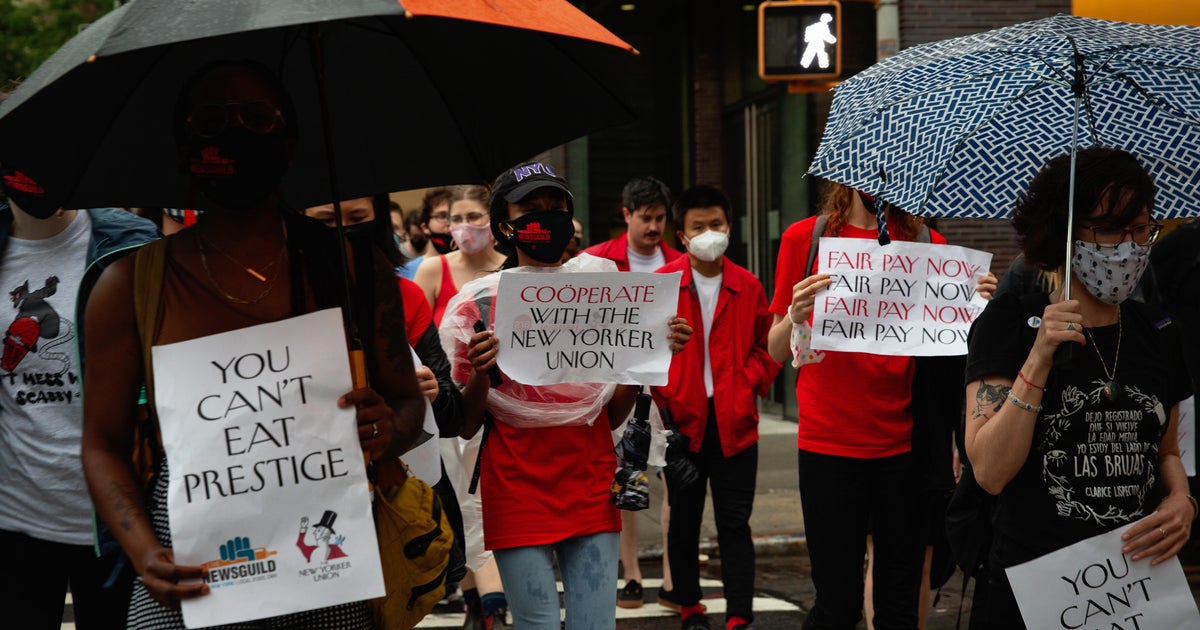China says tariffs will come down if trade deal reached with U.S.
- A Chinese Commerce Ministry spokesman said China and the U.S. have agreed to lower some tariffs if the sides reach a preliminary trade deal.
- Removing tariffs "will help stabilize market expectations, benefit the economies of the two countries and the world economy, benefit producers, and benefit consumers," the spokesman said.
- Global markets rose on signs of progress toward ending the U.S.-China trade war, though experts warn that a final deal isn't over the finish line.
Beijing — Beijing and Washington have agreed to reduce some punitive tariffs on each other's goods as talks on ending their trade war progress, a Chinese spokesman said Thursday, removing a possible stumbling block to a settlement.
The agreement came during talks aimed at working out details of a "Phase 1" deal announced Oct. 12. Financial markets were rattled by reports China was pushing for tariffs to be lifted, which raised the possibility of a breakdown in talks.
Negotiators agreed to a "phased cancellation" of tariff hikes if talks progress, said a Commerce Ministry spokesman, Gao Feng.
"If the two sides achieve a 'Phase 1' agreement, then based on the content of that agreement, tariffs already increased should be canceled at the same time and by the same rate," Gao said at a news briefing.
The size of the reductions would depend on the agreement, he said.
Investors cheered
Overseas financial markets rose on the signs of progress on a trade deal, while U.S. stock futures pointing to a strong opening.
"Market participants read this statement as a signal that a deal is done," Carl Weinberg, chief international economist with High Frequency Economics, said in a research note.
But Weinberg cautioned that a trade deal isn't over the finish line, noting that the Chinese Commerce Ministry conditions the removal of tariffs on first striking an agreement.
Governments of the two biggest global economies have raised tariffs on billions of dollars of each other's goods in the fight over China's trade surplus and technology ambitions. That weighs on trade worldwide and threatens to depress global economic growth that already is showing signs of slowing.
Taking down tariffs "will help stabilize market expectations, benefit the economies of the two countries and the world economy, benefit producers, and benefit consumers," Gao said.
The Oct. 12 agreement was modest and details have yet to be put on paper but it was welcomed as a sign of progress toward ending the trade war.
President Donald Trump agreed to postpone a planned tariff hike while lower-level officials hammered out details. Mr. Trump said China agreed to buy up to $50 billion of American farm goods. Beijing has yet to confirm the scale of its commitment.
News reports said Beijing wants 15% tariffs imposed in September on $125 billion of Chinese imports removed before it will make a formal commitment.
There had been no indication whether Mr. Trump might agree, which raised the possibility of another breakdown in negotiations.
Thornier issues pushed back
China's imports of American soybeans and other goods tumbled more than 26% in the first nine months of this year following tariff hikes and orders to importers to find other suppliers.
The Oct. 12 agreement helped to ease financial market jitters, but the two sides have yet to report progress on major disagreements over technology and other irritants following 13 rounds of talks.
Those issues include U.S. claims that China forces American companies to share intellectual property as a condition for doing business in the country, as well as allegations of Chinese industrial espionage.
Mr. Trump and Xi were due to meet at this month's gathering of Asia-Pacific leaders in Chile but that event was canceled due to protests there.
That dampened hopes a face-to-face meeting might produce progress. But U.S. officials say the two governments are looking for a different location.
U.S. Commerce Secretary Wilbur Ross said this week any "Phase 1" agreement would be general and cover trade in specific areas such as soybeans and liquefied natural gas.
More complicated issues would be tackled in later negotiations, Ross said. He gave no indication whether rolling back tariffs was a possibility at this stage.


